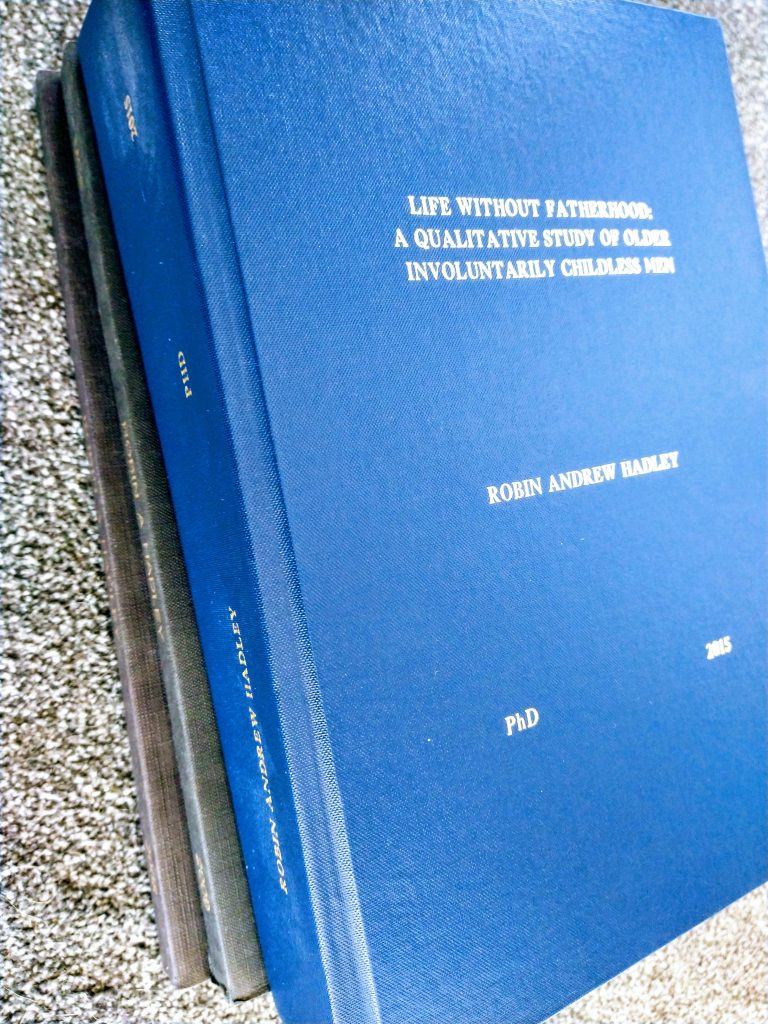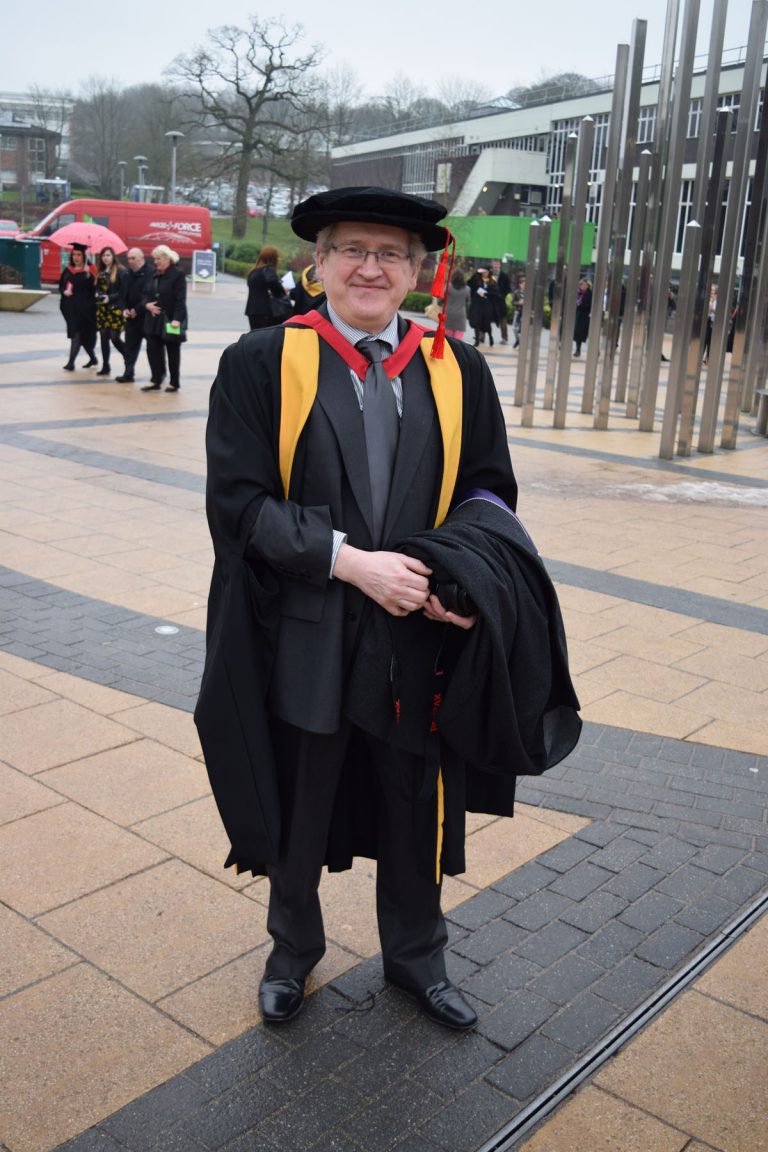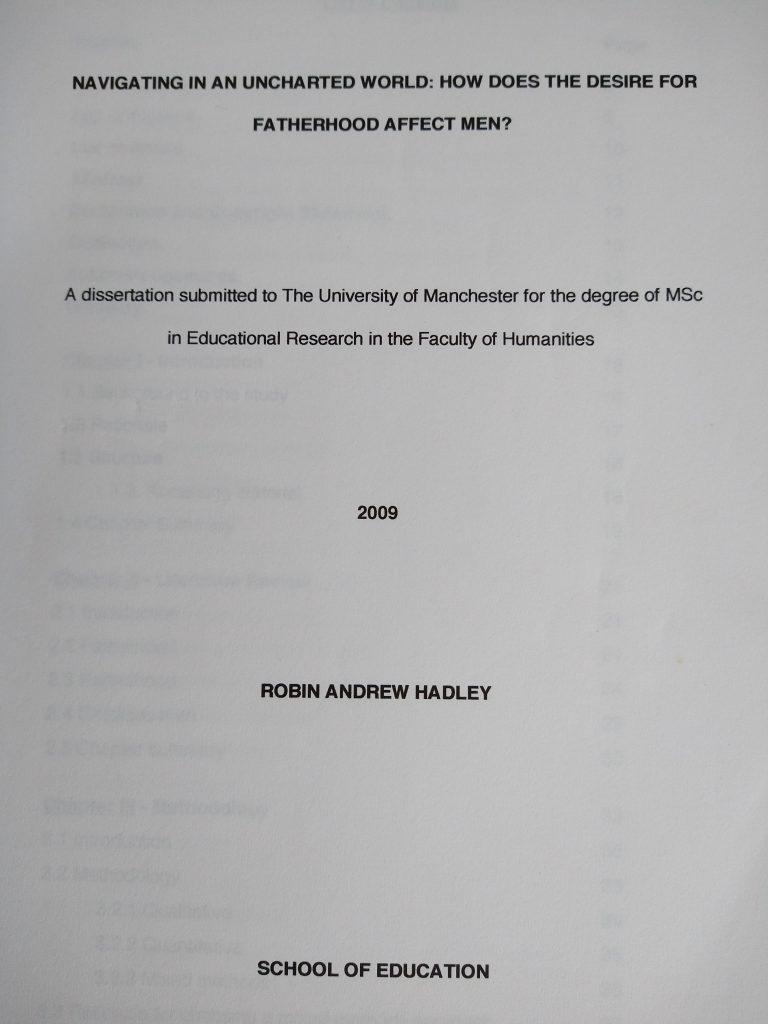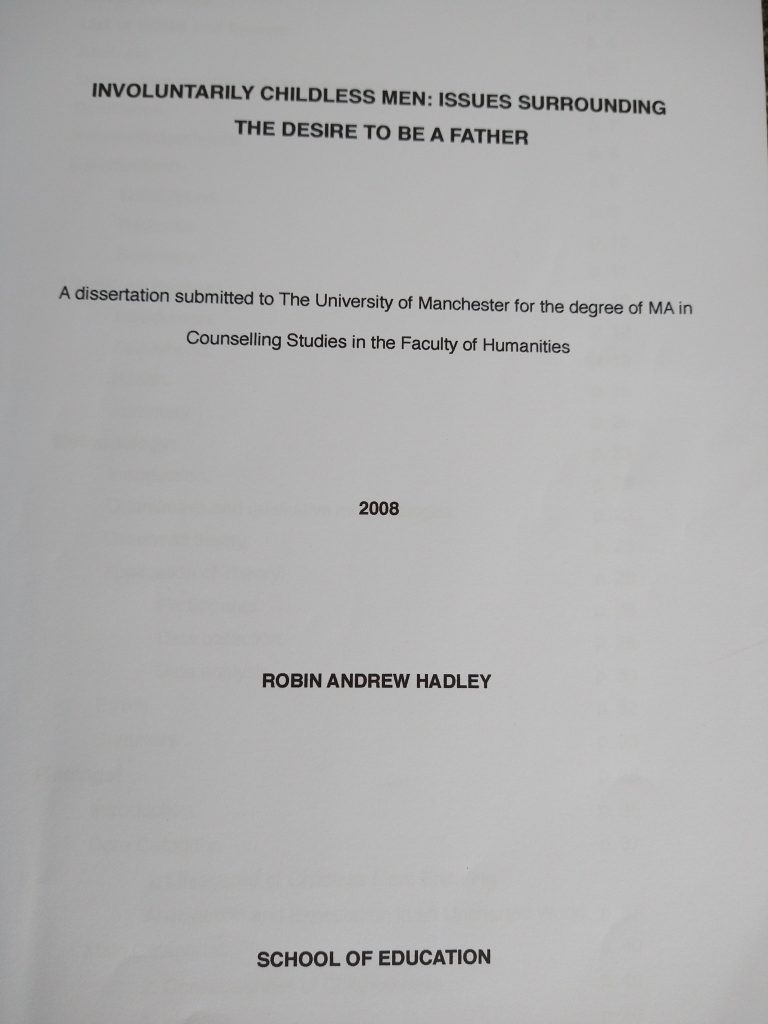Thesis title: ‘Life without fatherhood: a qualitative study of older involuntarily childless men.’
Supervisors: Professor Mo Ray and Dr Emma Head
Summary
My thesis counters the stereotype that parenthood is not as important to men as it is to women. This element of the patriarchal dividend supports the pronatalist ideal types of masculinity and femininity by stigmatising and denying the existence of men who do not reproduce. By examining older men’s lived experience of involuntary childlessness my research gives voice to a population that are missing from anthropological, gerontological, psychological, reproduction, and sociological research. Research has mainly focussed on family and women, with the fertility intentions, history and experience, of older men being overlooked. Most nations do not collect the fertility history of men and consequently, it is impossible to judge the population level of childless men. Although involuntary childlessness has frequently only been associated with infertility treatment there is growing recognition that there is a latent population that is absent from research literature. Infertility research has shown that failure to fufil both the personal and socially accepted status of parenthood, leads to a complex form of bereavement and a significant challenge to identity.
The global trend of a declining fertility rate and an increasingly ageing population has been extensively reported. This is significant not only because of the impact on the cost and provision of state services but also because adult children provide the majority of informal health and social care for older people. Ageing studies demonstrate that relationships and social support are as important as physical health for personal well being. Moreover, there is an increasing number of solo living older men.
My study is based on an ‘interpretivist’ paradigm comprising of an idealist ontology and a constructionist epistemology. A qualitative approach was taken in order to access the rich thick data of individual experience in the context of the wider socio-cultural environment. The influence of feminist research has led structural approaches, such as life course and gerontology, to encompass individual experience. Consequently, a pluralistic framework was developed founded on biographical, gerontological, and life course perspectives. Biographical narrative semi-structured interviews were used to reveal the formal and informal factors that influenced the participants’ lived experience. A small homogenous purposeful sample of 14 men aged 49 – 82 years old was recruited through a wide range of methods. Three of the participants and their partners had accessed infertility treatment. Two of the men were non-heterosexual, seven were in relationships, seven were single, and two were widowers. The majority of the interviews were conducted face-to-face but other methods used included Skype and email. A broad latent thematic analysis was applied to the transcripts and four main themes emerged: pathways to childlessness; negotiating fatherhood; relationships and social networks; ageing without children. The analysis highlighted that involuntary childlessness for older men was a complex intersection of age, economics, family, health, identity, relationships, socio-cultural structures, and the biological and social clocks, over time.
This study found there was a ‘continuity of discontinuity’ across the life course concerning childlessness. This is related to the factors that influenced the men’s childlessness, for example: infertility, partner selection, and timing of relationship formation and/or dissolution. A key element of the process was the participants’ view of their age in relation to the social expectations surrounding fatherhood. The men’s negotiation of the fatherhood mandate divided into three categories: aspirational, uncertain, and mediated. The first category desired parenthood, the second questioned the likelihood of parenthood, and the final category reported a qualified acceptance of their childlessness. Four of the men, as they aged, negotiated a form of ‘grandfatherhood’ role: adopted, latent, surrogate, and proxy.
My study shows that although a rational ‘acceptance’ of childlessness may have been negotiated, the reminders of not being a parent are ever-present and necessitate the continued negotiation of a complex discontinuity: a continuity of discontinuity. Elements of complex bereavement and disenfranchised grief, both associated with infertility, were evident and can be extended to those not receiving treatment. Losses included the roles and social dividend associated with parenthood, family status, and grandparenthood. The social clock was significant in the participants’ judgement of the appropriateness of actions, abilities, and behaviours, with some men viewing themselves as too old to be a father. Men’s fertility intentions change with age as financial circumstances, their partner’s biological clock and attitude to parenthood, become increasingly important. All the men demonstrated a hierarchy of relationship in which intimate adult relationship was desired more than the parental relationship. Consequently, I found there was a desire for, and significance to, different forms of relationships, from intimate to intergenerational, across the life course. This finding supports the view that social relations are adaptive, creative, complex and fluid.
This study drew attention to the contexts surrounding ageing in general and the nuances of ageing without children. The findings supported the concept of ageing as a complex interaction between biological, economic, social, and chronological factors. The participants’ subjective experience viewed health and relationships as the most important to quality of life, with broadly the single men citing the former and the partnered men the latter. An underlying concern was expressed regarding the financial future as well as access to, and quality of, health and care services in later life.
I argue that the men adjust their ageing identity through utilising available social scripts and other social resources rather than blindly following the ideal of hegemonic masculinity. A significant finding was the fear expressed by all the participants, of being seen as a paedophile. All the participants reported feeling that with age came a greater sense of freedom to express themselves. However, the men’s view of their future was one strongly associated with reduced activity, and predicted decline in functionality. This indicates that the participants’ views on later life had absorbed ageist social constructs that model old age as a period of decline, dependency and loss of dignity.
The findings of this study support the concept of a ‘continuum of childlessness’. It highlights how the participants related to, and managed non-fatherhood, and the influence it had on the their behaviours, attitudes, and identity at different times and locations across the life course.
Click for PDF of PhD SUMMARY




